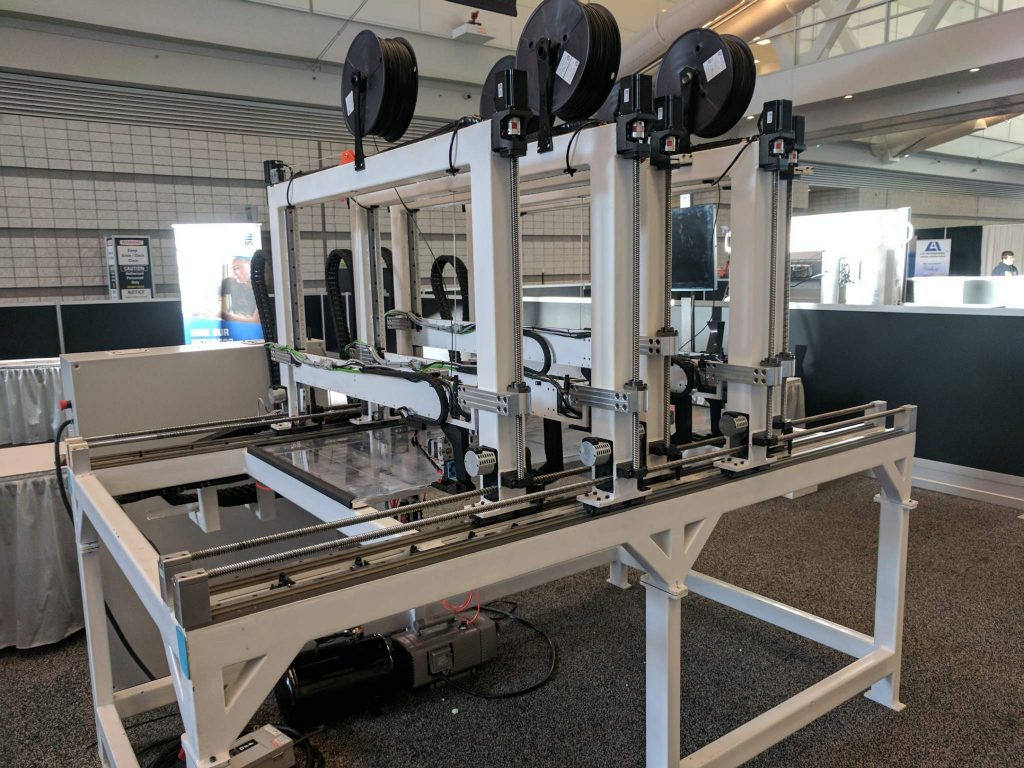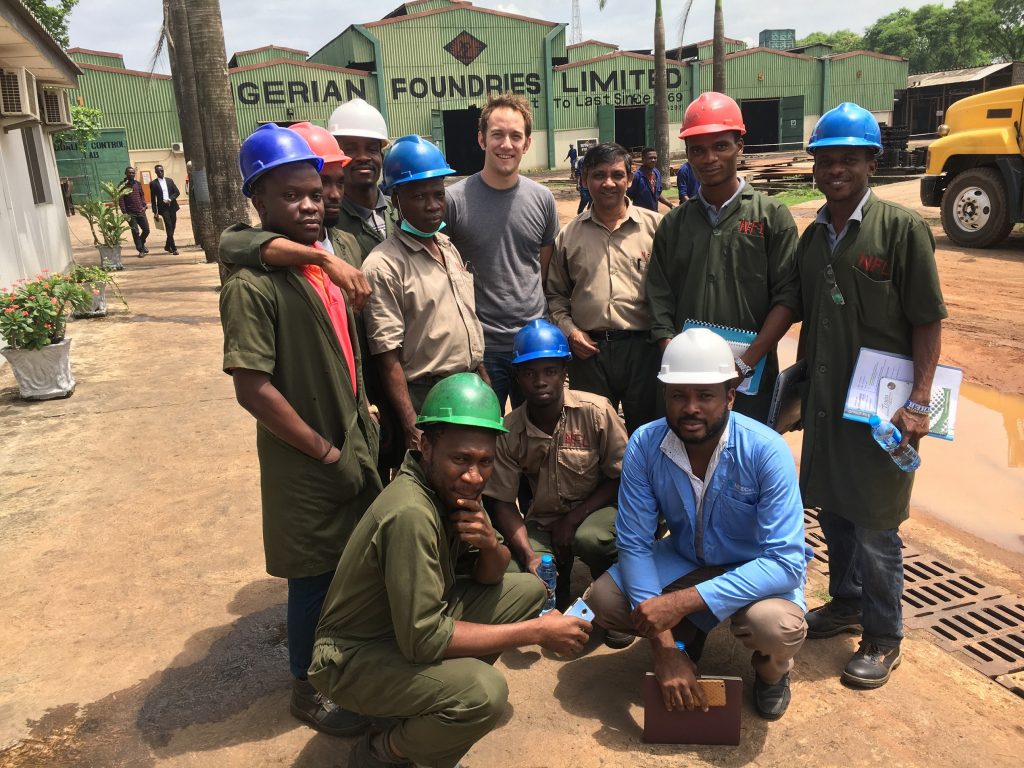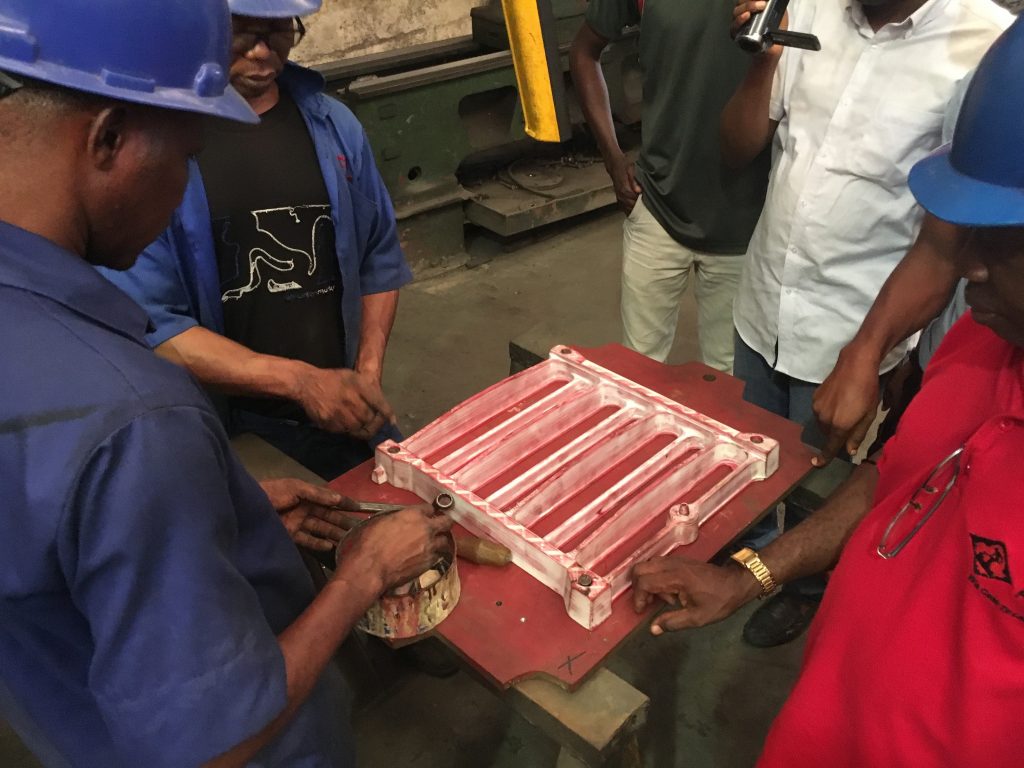Titan Robotics, a US-based manufacturer of large-scale 3D printers has teamed up with Nigerian Foundries, one of the largest foundries in Africa, to install a machine to assist their industrial metalworking. The foundry will now use this this machine to quickly produce components such as sand-casters, valves, pumps, machine housing and impellers for the country’s booming oil industry.

Clay Guillory, founder and CEO of Titan foundries travelled to the Nigerian Foundries in Lagos last year to personally oversee the installation of the Atlas printer. He was contacted by the foundries’ owner Vassily Barberopoulos, who wished to bring additive manufacturing into the business for tooling, prototyping and part production.
Titans in their respective fields
Titan Robotics was founded in 2014 in Colorado Springs. It has since created large, multi-gantry printers such as the Cronus powered by Project Escher, which began as a project at Autodesk’s Pier 9 workshop, and also creates custom printers made-to-order. As well as building printers for smaller local industries, they work internationally.
3D printing in Sub-Saharan Africa has so far been dominated by South Africa, with entrepreneurs from Togo, Uganda and Rwanda applying the technology housing and medicine. Guillory, noting the potential of large scale printing in Nigeria said that “people are ready to compete on a global scale here…this place has a lot offer and it’s an up and coming country.”

Nigerian Foundries, founded in 1969 as a small iron foundry, is now a large metalworks with two operational plants. The company was conscious of the need to boost the local economy in accordance with the Nigerian Local Content Act. They also wished to produce components to international standards, and to reduce production time. Titan Robotics’ 3D technology was consequently introduced.
Barberopoulos notes that “utilising this high end technology puts us in an international standard class worldwide and means we can compete in quality, standards, and in output with any other foundry worldwide”.
Improving the process
After the introduction of 3D printing, production time has halved. The quality of castings has significantly improved as the foundry used to carve patterns and tools out of wood by hand.

Barberopoulos explained that the carving method takes over a month, from the design to creating the wooden pattern and then casting it. A patterned part can now be made in 48 hours (instead of multiple weeks), and product which would usually take a month and a half is now produced within a week.
For more on 3D Printing across the continents, sign up to out daily newsletter, like us on Facebook and and follow us on Twitter.
Our featured image shows the Atlas 3D printer at Nigerian Foundries. Photo via Titan Robotics.

